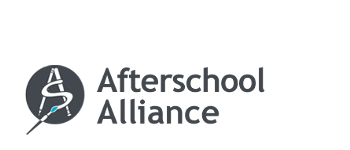Our Projects
PROJECT
Creating a Peer Learning Group to Advance Knowledge and Build Connections
NEW YORK LIFE FOUNDATION and AFTERSCHOOL ALLIANCE
The Challenge
New York Life Foundation has invested substantially in high quality out-of-school time (OST) programs for young people, in particular to support the critical transition from middle school to high school in under-resourced communities. To inform further investments and support grantees, the foundation provided a grant to the Afterschool Alliance, the leading national voice for afterschool, to build a peer learning group to increase knowledge and connections and strengthen the practices of its grantees working to support middle school youth in the transition to high school.
The Afterschool Alliance engaged The Learning Agenda to collaborate in creating and facilitating a productive and open space for grantee learning over the course of a year and a half. The intent was to allow grantees to connect with one another as well as with experts, access cutting-edge research and practical tools, and build shared resources to advance their practices in two areas: family and partner engagement, and evaluation of social-emotional learning (SEL).

The Learning Agenda Approach
Building and facilitating high-impact peer learning communities is a TLA specialty. The team worked closely with the Afterschool Alliance to convene 19 New York Life grantee organizations and respond to the challenges and priorities of the peer learning group. Over the course of the 18-month engagement, TLA facilitated 10 webinars and group discussion calls, as well as two in-person convenings, to advance grantee learning and engagement. TLA also supported the project by leveraging its knowledge and networks in OST and SEL to identify experts and peer organizations that could offer the group timely advice and practical tools to address their common challenges. Leading-edge researchers and thought leaders gave practitioners access to the latest research and tools from the American Institutes of Research, the Chicago Consortium on School Research, the Collaborative for Academic, Social, and Emotional Learning, and the Harvard Family Research Project, among others. Not only did grantees gain access to experts in the field, but through TLA’s carefully planned and executed group activities and discussions, grantees were able to work through how they would apply this research to solve their most pressing challenges.
The Results
Participation in peer learning group activities throughout the initiative was exemplary – near 100%. Feedback from the group was overwhelmingly positive, with members remarking that they were quick to put into practice what they gleaned from the group experiences. Two-thirds of participants stated that group was better than other peer group experiences they had participated in, one suggesting it should be a model within the sector. Further, connections made through the peer learning group have outlived the group, with members connecting on their own to share ideas or solve problems. Group members walked away with cutting-edge research in SEL, and strategies for SEL measurement and family and school engagement.
In Their Own Words
“We wanted our peer learning group to be a place for mutual learning and understanding – between funder, grantees and among participating organizations. The Learning Agenda helped us build trust and buy-in with our grantees which in turn helped to create a safe space that promoted and nurtured learning. On the process improvement side The Learning Agenda helped us clarify our goals and articulate our expectations. As a group, we worked together toward a common goal. Our peer learning group helped inform our grantmaking to better support out-school-time programs working with middle school youth.”
Marlyn Torres
Senior Program Officer, the New York Life Foundation
“When we started the project, I expected The Learning Agenda to bring knowledge of programs and facilitation expertise, but the full and thoughtful commitment of the team to help our client, our team, project participants and the OST field itself was outstanding. The project benefited from the deep knowledge of The Learning Agenda team about OST programming, current challenges and trends, and the network of experts/trainers brought to bear on the project.”
Ursula Helminski
Vice President External Affairs, Afterschool Alliance
